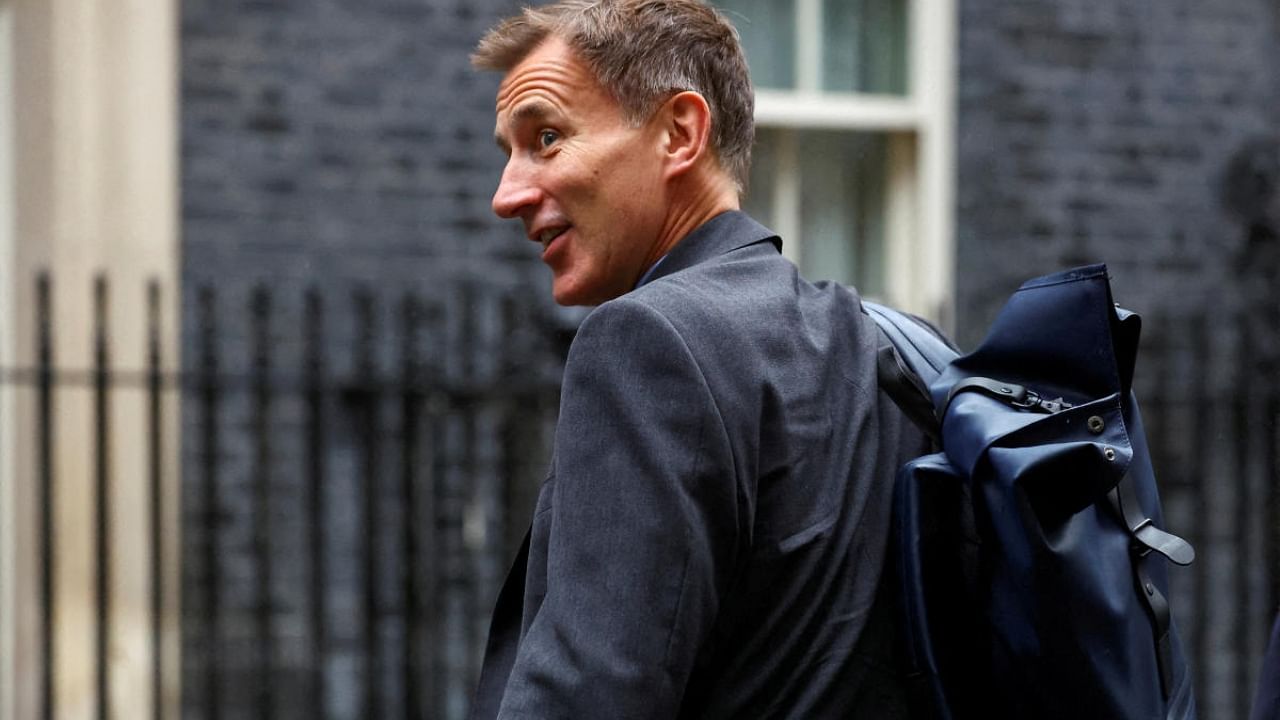
British finance minister Jeremy Hunt will seek to fill a 50 billion pound ($57 billion) hole in the country's public finances with around 30 billion pounds of spending cuts and 20 billion in tax rises, two government sources said on Monday.
Hunt is due to present a fiscal statement to parliament on November 17. He will aim to restore financial market confidence after his predecessor Kwasi Kwarteng's September 23 tax-cutting plan pushed sterling to a record low against the US dollar and ultimately forced Liz Truss to resign as prime minister.
Britain's Guardian newspaper reported on Sunday that early drafts of Hunt's statement included up to 35 billion pounds of spending cuts and 25 billion pounds of tax rises, while on Monday the Financial Times gave figures of 33 billion pounds and 21 billion pounds respectively.
Asked about these estimates, two government sources told Reuters that they were within the right ballpark, but that final figures were subject to change.
Britain's finance ministry declined to comment on the Guardian estimate on Sunday, and did not immediately respond to a request for comment on the FT estimate.
Last week a finance ministry source said broad-based tax rises were likely to fill a "fiscal black hole".
Britain's last set of budget forecasts was published in March when they showed 28 billion pounds of headroom to meet a government target to reduce debt as a share of the economy.
Most of the 45 billion pounds of unfunded tax cuts which Kwarteng announced were rapidly reversed, apart from a 16 billion pound cut in payroll taxes which took effect on November 6.
Short-term government borrowing costs are broadly back to where they were before Kwarteng's statement, but longer-term borrowing costs are somewhat higher and the economic outlook is bleak.
Last Thursday the Bank of England forecast Britain was at risk of its longest recession in a century, though one much less deep than during the pandemic or after the 2008-09 financial crisis. These forecasts assumed interest rates higher than the BoE says is likely, but did not factor in any fiscal tightening on November 17.
Last month Britain's Resolution Foundation estimated Hunt would need to announce 40 billion pounds of fiscal tightening to ensure public debt fell as a share of gross domestic product over the medium term, while also giving a 12 billion pound buffer against unexpected shocks.